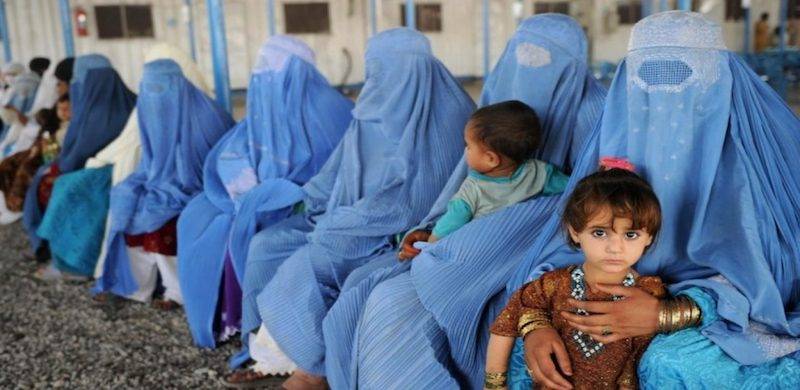
A new order by the Taliban government in Afghanistan makes it mandatory for all Afghan women to cover their faces in public, marking a return to the militant group’s hardline policy imposed during its 1996-2001 rule.
The decree, issued by Taliban supreme leader Haibatullah Akhundzada, states that if a woman is seen in public without her face covered, her father or closest male relative will either be imprisoned, or fired from governmental jobs.
The group said that the ideal form of covering would be the blue burqa, a garment that had become a trademark of the group's previous regime. While some women in Afghanistan do prefer to veil their faces, there are others still in urban areas such as Kabul, who prefer to opt for a simple garment or scarf to cover only their heads with.
"We call on the world to co-operate with the Islamic Emirate and people of Afghanistan. Don’t bother us. Don’t bring more pressure, because history is witness, Afghans won’t be affected by pressure," Mohammad Khalid Hanafi, the minister for the Propagation of Virtue and Prevention of Vice - the department responsible for the issuance of the decree - told a news conference.
The Taliban government, despite giving assurances of change and a willingness to uphold basic human rights, has steadily increased restrictions on women, drawing backlash and ire from the global community, including both Western governments and Islamic scholars who are critical of the restrictive and repressive nature of the Taliban rule.
Some regulations put forth by the Taliban in recent months that drew intense criticism include the ban on secondary education for women, limitations on women's movement without a male chaperone and a ban on men and women visiting parks together.
The decree, issued by Taliban supreme leader Haibatullah Akhundzada, states that if a woman is seen in public without her face covered, her father or closest male relative will either be imprisoned, or fired from governmental jobs.
The group said that the ideal form of covering would be the blue burqa, a garment that had become a trademark of the group's previous regime. While some women in Afghanistan do prefer to veil their faces, there are others still in urban areas such as Kabul, who prefer to opt for a simple garment or scarf to cover only their heads with.
"We call on the world to co-operate with the Islamic Emirate and people of Afghanistan. Don’t bother us. Don’t bring more pressure, because history is witness, Afghans won’t be affected by pressure," Mohammad Khalid Hanafi, the minister for the Propagation of Virtue and Prevention of Vice - the department responsible for the issuance of the decree - told a news conference.
The Taliban government, despite giving assurances of change and a willingness to uphold basic human rights, has steadily increased restrictions on women, drawing backlash and ire from the global community, including both Western governments and Islamic scholars who are critical of the restrictive and repressive nature of the Taliban rule.
Some regulations put forth by the Taliban in recent months that drew intense criticism include the ban on secondary education for women, limitations on women's movement without a male chaperone and a ban on men and women visiting parks together.

